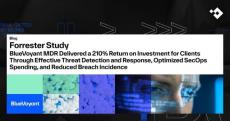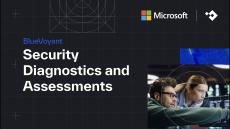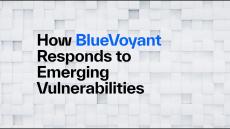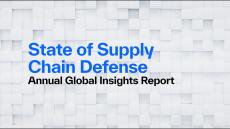|
By George Aquila
The majority of global organizations say they have been negatively impacted by a breach in their supply chain. In our latest survey, 81% of global organizations reported being negatively impacted by a third-party cyber breach.
|
By Leigh Glasper
The Digital Operational Resilience Act (DORA) came into effect on January 17, across the EU. This new regulation aims to fortify the cyber security defences of financial services firms and their suppliers against digital threats. Understanding DORA is crucial for businesses as it unifies cyber security regulations, reducing vulnerabilities and ensuring compliance. In this blog, we'll explore what DORA entails, its key components, and its implications for both EU and UK-based financial institutions.
|
By Alisdair McLaughlin
The Network and Information Security Directive (NIS2 Directive) is an important piece of European Union legislation aimed at bolstering cyber security across the member states. NIS2 officially came into force on 17th October, and while some EU member countries have met this deadline, many are still working to fully transpose the legislation.
|
By Mona Ghadiri
In my experience, computers are only as smart as the person in front of them. Same with AI. The results are dependent on the prompts given. Today, users typing prompts from their brains into Microsoft Security Copilot may find it hard to get value. Prompts with adequate specificity are difficult to create, let alone repeat.
|
By BlueVoyant
To show regional differences, BlueVoyant’s latest research report includes C-level executive responses from organizations in the U.S. and Canada, U.K., Continental Europe, and APAC. Singapore had among the lowest reported negative impacts from third-party cyber breaches, while the U.K. had the most. Regional differences play a notable role in shaping how organizations approach and handle third-party cyber risk management (TPRM).
|
By Chloe Schwartz
Every year, more and more companies are confronted with website and email spoofing worldwide. Cyber criminals use fake websites and fake email accounts for phishing, spear phishing and social engineering attacks to commit fraud, redirect web traffic, or manipulate search engine rankings. The disarming, or takedown, of these fake domains is a real challenge for more and more security teams. This is because cyber criminals are becoming increasingly professional in their spoofing activities.
Featured Post
The COVID-19 pandemic exposed significant vulnerabilities in global supply chains. With technology companies scrambling to respond to unprecedented disruptions, it became clear that traditional supply chain models were no longer sufficient. When we look back on the supply chain crisis before and during the pandemic, it is easy to identify the areas of improvement because we now have so much more information and the benefit of hindsight, but during the crisis, it was extremely challenging to find immediate ad-hoc solutions, which clearly illuminated a lack of contingency planning.
|
By George Aquila
Security operations teams face escalating demands to promptly detect and respond to third-party cyber threats, largely due to the increasing number of data breaches occurring within an organization’s supply chain. An effective program to manage this type of cyber risk is essential for safeguarding sensitive data and maintaining business continuity.
Over the past year, BlueVoyant’s cyber threat analysts have identified a significant rise in third-party phishing tactics, most notably with a campaign impersonating the Zelle digital payment service. By mimicking a well-known payment site like Zelle, threat actors can evade detection more effectively while collecting credentials and personally identifiable information (PII) from online users of hundreds of financial institutions.
|
By Milan Patel
Organizations’ security operations (SecOps) programs are under increased pressure due to more sophisticated threats, a continually expanding attack surface, and strained internal resources. To help solve these challenges, BlueVoyant MDR delivers 24x7 threat monitoring, detection, hunting, and response powered by advanced automation and human expertise.
|
By BlueVoyant
Discover BlueVoyant's highly customizable, AI-driven questionnaire platform that automates assessment creation and distribution.
|
By BlueVoyant
BlueVoyant has guided hundreds of clients to assess, deploy, and optimize their Microsoft security products. Our sessions are personalized one-on-one engagements where we analyze your unique environment, provide insights and guidance, and help you make data-backed decisions about your next Microsoft Security investment. Optimize security and potentially save up to 60% - Consolidate your solutions with Microsoft, get more out of E5, leverage compliance and security add-ons.
|
By BlueVoyant
Secure your vendor and partner ecosystem in five easy steps with BlueVoyant Supply Chain Defense.
|
By BlueVoyant
In today's increasingly hostile threat landscape, organizations are grappling with a lack of resources and overworked security operations teams, making effective, full-coverage threat detection and response a significant challenge. BlueVoyant Managed Detection & Response provides a cloud-native solution that offers end-to-end consulting, implementation, and managed security services with 24x7 security threat detection and response.
|
By BlueVoyant
The BlueVoyant Cyber Defense Platform helps secure Azure, Microsoft 365, and hybrid cloud environments. We're trusted by more than 1,000 clients in 40-plus countries.
|
By BlueVoyant
Identify gaps and achieve NIS2 readiness with BlueVoyant.
|
By BlueVoyant
Discover how to unleash the full capabilities of your Microsoft Security tools and optimize your Copilot experience with BlueVoyant.
|
By BlueVoyant
Seamlessly integrate internal, supply chain, and external cyber defenses.
|
By BlueVoyant
Discover how supply chain cyber breaches are impacting global organizations in BlueVoyant's fourth annual survey into supply chain cyber risk management.
|
By BlueVoyant
Businesses operating within the EU must prepare to comply with the stringent requirements of NIS2. Failure to do so could result in significant penalties, highlighting the urgency for organisations to act swiftly. NIS2 introduces new requirements in areas such as risk management, corporate accountability, reporting obligations, and business continuity.
|
By BlueVoyant
In today's connected world, there's no shortage of entry points into financial institutions. From online banking websites to mobile apps, these crucial parts of a business are also easy targets. Taking a proactive approach to protect your customers' assets and your brand is the answer, but where do you start?
|
By BlueVoyant
Your business is your castle. Once upon a time, you could keep it safe by constructing strong walls, posting a few guards at the door, raising the drawbridge, and digging a deep moat around it. That's now the stuff of fairy tales. Today's networks simply can't be locked down due to the nature of business itself. The perimeter that was once contained to a single building now spreads as far as your furthest third-party connection or remote employee. And while your business benefits from this greater flexibility and increased operational efficiency, so do the cybercriminals.
|
By BlueVoyant
When it comes to designing or improving upon your organization's security program, one key area to focus on and include is cyber resilience. Either as a complementary stand-alone program or embedded into an existing cyber defense program, cyber resilience refers to a company's ability to continue business operations and outcomes in spite of cyber attacks or events.
|
By BlueVoyant
In the past few years, third-party cyber attacks have imparted financial and reputational damage to every sector, from banks to healthcare systems to governments. The average cost of a third-party data breach in 2021 was $4.33 million, according to a report from IBM and the Ponemon Institute. While CISOs are well aware of the potential supply chain devastation from attacks, preventing them has been a challenge. In this white paper, we'll walk through three third-party breach scenarios, including real-world examples, offering practical solutions to prevent such attacks.
- February 2025 (1)
- January 2025 (3)
- December 2024 (2)
- November 2024 (2)
- October 2024 (1)
- September 2024 (11)
- August 2024 (4)
- July 2024 (5)
- June 2024 (3)
- May 2024 (1)
- April 2024 (3)
- March 2024 (1)
- December 2023 (1)
- November 2023 (3)
- October 2023 (7)
- September 2023 (4)
A comprehensive security operations platform empowered by AI to enable uninterrupted protection against potential threats.
BlueVoyant combines internal and external cyber defense capabilities into outcomes-based, cloud-native cybersecurity solution by continuously monitoring your network, endpoints, attack surface, and supply chain, as well as the clear, deep, and dark web for threats.
BlueVoyant Cyber Defense Platform:
- Detection & Response: Protect your endpoints, network, and cloud from sophisticated threats while leveraging your existing security tool investments — EDR, SIEM, others.
- Supply Chain Defense: Rapidly identify and drive remediation of critical cybersecurity issues in your third-party ecosystem, including zero-day and emerging vulnerabilities.
- Digital Risk Protection: Detect and eliminate cyber threats originating in the clear, deep, and dark web before they impact your business and customers.
- Cyber Posture Management: Systematic approach that involves the continuous measurement, management, and mitigation of cyber risk.
- Proactive Defense: Collaborative and holistic approach to attack surface management that includes vulnerability management, penetration testing, phishing awareness, dark web threat research, and configuration management.
Seamless AI-driven internal, external, and supply chain cyber defense, all within one powerful Security Operations Platform.






















